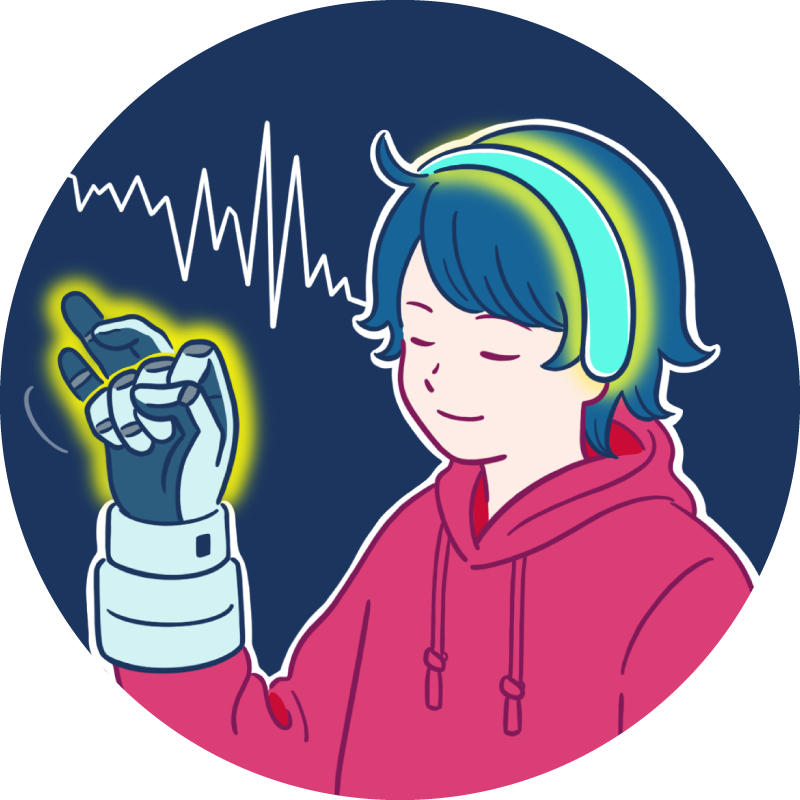
Overview
IoB Interface aims to promote brain-machine interface (BMI) technology by developing technologies to extract thoughts and mental states from brain activities using various devices and by implementing them in society.
Specifically, we will develop algorithms that can quickly pull out thoughts and mental states in everyday environments by combining gadgets-like brain wave sensors such as headphones, earphones, etc. and videos from mobile phones.
Using these technologies, we aim to promote BMI technology in society by creating applications that enable self-regulation by visualizing our day-to-day subconscious physical changes, as well as applications to enable communications between users with difficulties in expressing themselves.
Member
-
USHIBA Junichi,Ph.D.
Professor, Faculty of Science and Technology, Keio University
In this R&D project, we will develop scalp-electroencephalogram-based brain-computer interface (BCI) technology for everyday use. A large-scale field study will be conducted with the healthcare, sports, music and research industries. We will consider the social implications of AI-aided non-surgical BCI and its application to “Cybernetic Avatars”, using evidence-based research and ethical guidelines.
- IoB Interface
-
FURUYA Shinichi,Ph.D.
Research Director of Tokyo Research, Sony Computer Science Laboratories, Inc.
In this research project, our group aims to develop and deploy a novel system enabling physical/mental conditioning of musicians who suffer from neurological disorders associated with over-training and are around the gray zone (i.e., “dynamic stereotype”). This project aims at enhancing the quality of life of the musicians, not only through forecasting fluctuation of the condition (e.g., slump and fatigue), but also through recommending appropriate conditioning, based on fusing novel mobile-sensing systems and AI technologies. Moreover, fundamental technologies derived from our research will be used for developing novel injury-prevention systems for healthy musicians, toward a goal of establishing a cultural society considering the safety and wellbeing of artists.
- IoB Interface
-
KOIZUMI Ai,Ph.D.
Researcher, Sony Computer Science Laboratories, Inc.
In this research project, we aim to develop basic technologies to monitor and predict the maladaptive mental states of humans from their ambient surface information, and to guide them into better mental states through visualization and feedback of the processed information. Various mental disorders are characterized by their bodily symptoms, in addition to their mental symptoms. By developing technologies to objectively and constantly monitor the signals of mental issues hidden in ambient surface information, including bodily information, along with neuroimaging techniques, we aim to improve the mental health care system in society.
- IoB Interface
-
WATANABE Katsumi,Ph.D.
Professor, Faculty of Science and Engineering, Waseda University
In this study, we will investigate decoding mind-body status from explicit and implicit ambient surface information (IASI), and effective applications of IASI. Particularly, we will research the limitations and effectiveness of IASI in mind-body decoding and aim at improving IoB interfaces by combining them with the decoding of neural signals. Also, we will explore practical usage of IoB interfaces, and effective feedback methods in everyday life, by collaborating with people in the healthcare field. We plan to propose intellectual and social foundations for the augmentations of perceptual, cognitive, and physical capabilities of people from various social and ethical backgrounds, with consideration of individual differences and diversity.
- IoB Interface
-
NAKAZAWA Kimitaka (Participated until FY2023),Ph.D. (Participated until FY2023)
Professor, Department of Life Sciences, The University of Tokyo
In this study we aim to develop new systems to decode mind-body status from explicit and implicit ambient surface information (IASI) in our daily life. We will carry out both laboratory-based experiments and field studies simultaneously to approach this goal. Specifically, we will try to develop systems decoding mind-body status from posture and gait IASI. To this end we will conduct both fundamental studies using neurophysiological experiments, as well as more practical field studies.
- IoB Interface
Related Links
[Research Article] An interview article with Dr. Furuya was published on note
[Event Report] We Exhibited at the Neuro2024 Exhibition Booth
[Research Article] Aiming for a Society Where Diverse Individuals Play Active Roles: Providing Helpful Feedback for Improvement before They Recognize Mental Unwellness
[Research Article] Playing Games with Brainwaves: Bringing “The Sense of Moving with Your Mind” to Life with Headset-Type EEG and AI
[Event Video] BMI Brainpic 2024 by Internet of Brains
[Event Video] BMI Brainpic 2024 – short ver –
[Research Video] Brain GO – Electric Wheelchair Controlled by Brain Waves –
[Research Video] Brain GO – Electric Wheelchair Controlled by Brain Waves – Short ver.
[Event Video] BMI Brainpic 2022 by Internet of Brains
